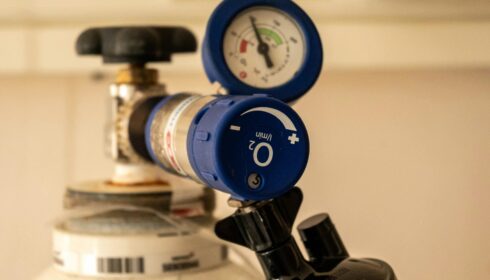Acetazolamide in Acute Decompensated Heart Failure with Volume Overload

Acetazolamide in Acute Decompensated Heart Failure with Volume Overload
Mullens W. NEJM 2022; 387:1185 – 1195. doi:10.1056/NEJMoa2203094
Clinical Question
- In adult patients with acute decompensated heart failure (ADHF), does the addition of acetazolamide to loop diuretics improve decongestion by day 3?
Background
- Fluid overload has been independently shown to increase mortality in the general ICU population
- A recent registry study of nearly 50,000 ICU admissions reported that around half of all ICU patients are administered diuretics during their stay – in 95% of instances patients receive furosemide
- The ASCEND-HF trial showed that a high proportion of patients with ADHF were admitted to a critical care area (ICU or CCU) and re-admission rates are high (50% within 6 months)
- Readmission is associated with increased morbidity and mortality, however optimal strategies for decongestion are yet to be determined
What did they do?
- Between 2018 and 2022, 519 adult patients admitted to hospital with ADHF and clinical signs of fluid overload alongside a raised BNP were randomised
- Important exclusion criteria included current use of acetazolamide or an SGLT2 inhibitor, hypotension (SBP < 90 mmHg), a GFR < 20 ml /min
- Treatment with IV furosemide > 80 mg (or equivalent) during index hospitalization was not allowed prior to randomisation
- Patients were randomised in 1:1 ratio to receive either 500mg dose of acetazolamide or matching placebo
- This was given for 3 days or until complete decongestion (clinical absence of fluid overload (oedema, pleural effusions and ascites)
- Loop diuretics were given at double maintenance dose (as a bolus and then split into two doses per day for the next 2 days)
- Median daily maintenance dose of furosemide was 60mg across all groups
- Treatment could be escalated according to a protocol if urine output insufficient and ongoing evidence of fluid overload
- Baseline characteristics were balanced between groups
What did it show?
- Increased rates of successful decongestion in acetazolamide group (RR 1.46, 95% CI 1.17 – 1.82)
- This seemed to persist to hospital discharge in an exploratory analysis
- Increased diuresis (500mls at 48 hours, 95% CI 200 to 800mls) and natriuresis on day 2 in acetazolamide group
- No difference in mortality or length of hospital stay
- No difference in adverse events
How does it fit into other evidence?
- The DOSE trial was a 2×2 factorial trial that randomized patients with acute decompensated heart failure (ADHF) to a high or low dose furosemide strategy as either a bolus or continuous infusion
- No significant difference in patient’s perceived symptoms or renal function was noted between the groups, however across all groups only ~15% were free from congestion at 72 hours
- This study shows that decongestion can be improved with the addition of acetazolamide, however, benefit with respect to patient focused outcomes have yet to be shown
- Ultrafiltration as a strategy to decongest ADHF patients has also been studied (UNLOAD, CARESS-HF) with differing results with respect to success of decongestion and hospital readmissions
External Links
Metadata
Summary author: George Walker
Summary date: 30th May 2023
Picture by: fietzfotos/Pixabay



